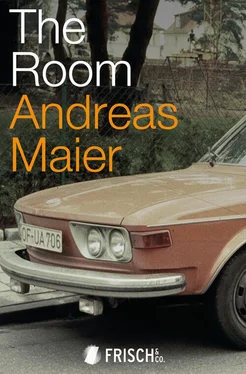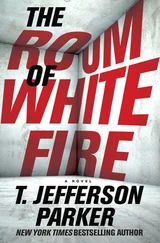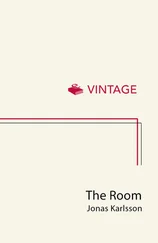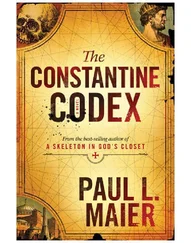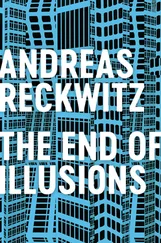And so my uncle steps onto the company grounds in the second year after the death of his father, my grandfather, and the whole world is surprisingly in order. He is almost a boss. The brother of the director. He goes into the mill to Frau Smoke, the secretary, and waits for his sister. Here too, he is treated with respect. Frau Smoke says: Herr Boll, can I get you a coffee? My uncle isn’t used to being treated like this. Two factors needed to align for this to happen: first, that Wilhelm Boll is now dead, and second, that J is now dropping by the company premises in Mühlweg on a regular basis again, because the Variant has been put at his disposal and he always has errands to run with it, including the ones for his sister. The authority that Wilhelm Boll once had in the company has been passed down to his successors, first and foremost to the sister of course, who is now in charge of things, but also to J and the younger brother, who likewise has recently been greeted on the premises as if he’s management. Frau Smoke brings my uncle a coffee, lights up a cigarette for herself, and my uncle lights up a cigarette too. The cigarettes are in a small wooden box on the table and, officially speaking, are part of the office equipment and therefore appear in the bookkeeping. My uncle sits there and waits, in an old room, timber all around him, linoleum floors and filing cabinets, painted grey and made of steel, with roller shutters. The mill is several centuries old and now being used as an office. It must have already been ancient even back then, and it wouldn’t hold out for much longer — five years later the company itself didn’t exist anymore, and another few years after that not even the mill was there. Maybe I’m there in the office too, already back from the dentist and handed over into Frau Smoke’s care temporarily. I remember Frau Smoke (who was always smoking, that’s what killed her in the end) just as vividly as the office itself. I always enjoyed the time I spent with Frau Smoke. I liked going to the company full-stop as a child, back when I was five or six, whenever I wasn’t with my great-grandmother Else, the mother of J’s father, or in Uhlandstrasse with my grandmother. I couldn’t handle being around my siblings at home, after all, whereas at the company I would mostly be left to my own devices. Often, while Frau Smoke was smoking, I would sit on a chair and look at all the accounting books and the typewriter and the ballpoint pens and pencils and sharpeners and rubbers and the sponge that was used to moisten stamps — that ancient type of office that doesn’t exist anywhere anymore, it looked like Firma Hesselbach from TV. Sitting in Frau Smoke’s office meant sitting in a cloud of smoke, and if I did indeed happen to be present that day, the one I’m describing and inventing here, the day in the life of my uncle back when I was two, then I would have been sitting in double or triple the quantity of smoke, because both Frau Smoke and my uncle were smoking, and if one of the workers came in, then he would of course join in and smoke too. The office was small, stuffed with things, everything more or less askew, and the roof of the building was bowing in and would soon collapse, and perhaps even as a child it already seemed to me as though we were sitting in our own past. Did they dream of the future in that office? Were they eagerly awaiting the newest technical innovations there too? From the moon landing onwards, the word computer kept being mentioned, despite the fact that, to date, they hadn’t yet encountered even the first calculator. Frau Smoke was the Mistress of the Filing Cabinets. They were still writing everything with carbon paper back then, the filing cabinets smelt of tobacco, Frau Smoke ate wurst sandwiches from greaseproof paper and from time to time an onion, and she would make her cigarettes vanish into an ashtray, the lid of which would open at the push of a button, then pivot around before closing again. Nothing in that office was electrical except the light and the fridge, which was there for the beer of course. There was always a crate of beer in the cellar of the mill, as supplies. This building, which had not dated in four hundred years, would age quickly in the years following the moon landing, and then soon fall apart. But for now it still housed the office of the Karl Boll stonemasonry and was in the middle of its lifespan. Karl Boll, J’s grandfather and my great-grandfather, who had led the company since 1930, had died only recently. J’s father and grandfather both died in the same summer, at the end of which I arrived, the last member of the new family. My grandfather had been sitting in the mill as senior partner only a short while ago, smoking his cigars in active retirement, and now he was a photograph, hanging where he had once sat and smoked, adorned with the black mourning ribbon of Summer ’67. The letters of his name on the gravestone were still white and fresh. There he sits in the photo of the company’s centenary celebrations, already a geriatric and a dignitary. For me, the office that Frau Smoke worked in is the oldest piece of the world that I know. Without realising it, I lived in a completely different era there. In that office, I lived in an era which pre-dated the war I had never heard of, I lived in the era of the Weimar Republic and the era of the German Empire too, despite the fact that Frau Smoke was already driving to work in an Audi 100. Every day, she drove the seven kilometres to the office from Nieder-Mörlen, the same distance that my great-grandmother Else used to walk on foot to visit her relatives. Today, if Frau Smoke were still alive (which, as I already mentioned, is not the case), she would take the bypass. Frau Smoke, with her deep, smoker’s voice.
His fingers yellow and brown, my uncle sits there in his grey-brown shirt, smoking and staring out to the street, at his Nazi-brown Variant, while Frau Smoke coughs. By the seventies, she will be coughing more and more, and soon after that she will be dead. Now his sister comes. She still needs to go to the butcher’s and then to Edeka. If I am there, she probably tells me I need to stay a little longer and that my great-grandmother will pick me up later (whether I’m old enough to understand what she’s saying to me, I don’t know). So I stay there in the cloud of smoke with Frau Smoke, who is just lighting up a new cigarette, and my uncle and my mother rush off, for she needs to be back home soon to look after my siblings, the evening meal needs to be prepared and so on and so forth. My mother strides across the company grounds, being bid a polite farewell by everyone and acknowledging them with an embarrassed smile, because until recently she could never have imagined suddenly being the head of such a big company. She is probably wearing a light, brightly-coloured coat, and I imagine a neck scarf too, the coat around knee-length, her hair combed back softly. She is thirty-four years old. She walks quickly over the street, heading left towards Blum’s Butchers on the corner, and my uncle gets into the car and drives after her.
Blum’s Butchers is on the ground floor of a small residential building with three steps leading up to it. My uncle stops the car so that Ursel can ‘hop’ right in when she’s finished. Tiled walls, the space itself empty apart from a small counter on the right hand side, and behind it the meat and sausages hang over the grinding machine. Through the big window pane, my uncle sees young Frau Blum and Ursel engaged in sales talk. The young Frau Blum picks up the Cervelat sausage, then the beer sausage, three hundred grams of cold cuts perhaps, and packs everything into greaseproof paper. My mother in her coat — she rushed into the butcher’s like a buffet of wind — and the young Frau Blum in an apron, as always. Now the mince. Half pork, half beef. We always have meatballs on Saturdays, and perhaps today is Friday, so that means she’s procuring them for the next day. After she pays, they carry on talking. Now they’re laughing even, silent behind the windowpane as my mother puts her big purse back in her handbag, which she then tucks under her arm in order to be able to pick up the package of meat with both hands. She stands there for a while longer with the package of meat in her hands, there are still things to talk about, so why did my uncle have to rush so much? Maybe she’ll stay there for another half hour, and then old Frau Blum will end up coming down in her apron too, or Frau Siebert from Blumensiebert or Frau Jakumeit, and they’ll discuss neighbourly matters until there is nothing left to be said, talking into the evening and into the night while my uncle sits in the Variant, and inside the butcher’s everyone is laughing and cheerful and happy, and he can’t go to Forsthaus Winterstein, so he takes out a machine gun, gets out of the car, shoots, kills and massacres everyone in the butcher’s and then runs onto the street and shoots the passers-by and ideally everyone on Mühlweg too, until there’s a mountain of five hundred corpses lying there, and then he gets into his Variant and drives to Forsthaus Winterstein and orders a beer in the orderly and proper manner and at least one Doppelkorn maize schnapps. But neither Frau Siebert nor Frau Jakumeit nor old Frau Blum come, and my mother has already left the shop by now, holding on tightly to the rail that runs along the three steps and looking carefully down at the ground, step by step, for she is wearing heels and it would be easy to trip. There is still a smile on her face. Now Ursel ‘hops’ into the car and continues with the conversation she started in Blum’s. Oh, that Frau Blum, she says. Her brother has a moped now, and the dachshund is always running after him. He only needs the moped for driving to the inn, though. And the dachshund is always running along behind him, just like Pluto whenever Grandpa Karl goes to the Goldenen Fass, oh, turn off here for a moment so we can go to Edeka. My uncle turns into Gebrüder-Lang-Strasse. Wait here for a moment, she says, I won’t be long. At which she disappears into Edeka. She’s always in a hurry, but she always gets held up, and of course she has to converse with lots of people around here, for everyone knows her now, the director of the stonemasonry in the Barbara neighbourhood. A place of long-standing tradition. As he waits, my uncle grips the steering wheel as if he’s still driving and stares through the windscreen of the Variant from beneath his charcoal-black eyebrows, perhaps at that moment fifteen-year-old Elke Schuster is walking by, wearing a very short skirt or maybe even a miniskirt, in keeping with the fashion of the time, and she has breasts too. Everything goes empty and silent in my uncle’s mind and his eyes protrude from his head at a considerable distance. But perhaps fifteen-year-old Elke Schuster is not walking past at that moment after all, and instead my uncle is just staring into space with both hands on the steering wheel — what else is he supposed to do? After a few minutes, my mother comes out of Edeka with a shopping bag and enthuses about the increased selection, you can buy almost anything at Edeka now, you don’t need to go anywhere else. Before you had to go to Kissler on Kaiserstrasse or into the old town to Mörler bakery, she says, but the bread counter in Edeka is so good now that I can always get what I need, so now we can drive straight to Nauheim. Have you been to the cemetery? Yes, says J. She: Did you water the flowers? Yes, says J. Good, she says, then I don’t need to do it. God, is it that late already? Mother still needs to go to the hairdresser. Oh, wait a moment, drive back into town again, could you, I need to pick up the bedding from the launderette, it won’t take a moment.
Читать дальше
